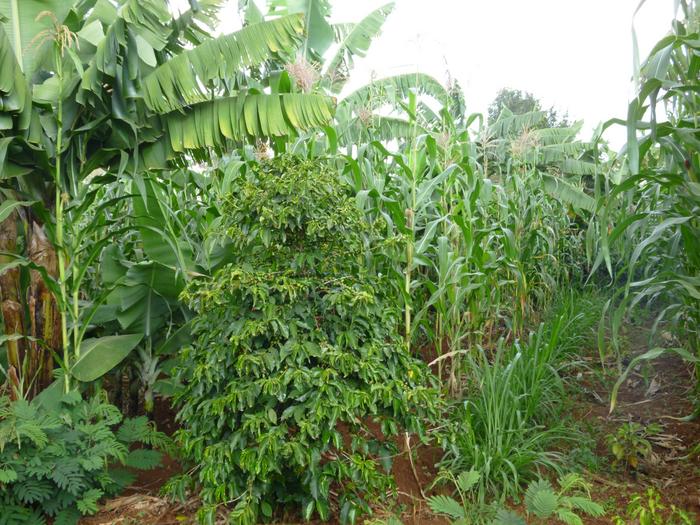A balanced diet is crucial for combating hunger and malnutrition, issues that are particularly pressing in low- and middle-income countries. Traditionally, experts have recommended that small-scale farmers cultivate a variety of crops on their smallholdings to enhance their dietary diversity. However, a groundbreaking study from researchers at the University of Bonn has called this assumption into question. The study emphasizes that access to regional markets may hold greater significance than the diversity of crops that farmers produce on their own land. By improving market functions, local populations can enjoy a wider variety of foods, thereby benefiting from enhanced dietary options.
The research addresses the stark reality of unbalanced diets in the developing world, where limited food choices lead to health repercussions. Households, especially those relying primarily on small-scale farming, are often unable to procure necessary nutrients. In an effort to address this issue, there has been a push for farmers to increase the diversity of their crops, but this study suggests that a more efficient approach could be to improve access to markets, thereby enriching local diets with a broader spectrum of available foods.
To validate these claims, the researchers compiled and analyzed an extensive dataset comprising surveys from nearly 90,000 households across six African countries—Ethiopia, Malawi, Niger, Nigeria, Tanzania, and Uganda. Conducted between 2008 and 2022, these surveys included valuable data on the types of crops cultivated, animal husbandry practices, and the dietary consumption patterns of the households surveyed. The findings challenge prevailing wisdom about dietary diversity and agricultural practices.
The study’s results reveal that while increased variety in crop production does correlate with improved dietary quality among farmers, the impact is less significant than anticipated. According to Dr. Thanh Tung Nguyen, who co-led the study with Professor Matin Qaim, ensuring good access to local and regional markets is paramount. These markets facilitate the sale of excess produce while also allowing households to purchase foods that they cannot produce themselves. The data shows that agricultural households consumed only about one-third of their food from their own production, indicating that marketplace access is already a critical factor in a healthy diet.
Interestingly, the research found a definitive link between proximity to local markets and dietary enrichment. Households situated closer to markets tend to have access to a wider array of purchased foods, enhancing their overall meal diversity. This trend was consistent across all six countries included in the study. Given that many rural areas still grapple with poor infrastructure and limited market access, the study underscores the urgent need for development initiatives focusing on improving transport links and market facilities.
The authors of the study recommend a radical shift in policy and practice. Instead of concentrating solely on the diversity of crops cultivated on individual farms, the focus should expand to improving overall regional food systems. Monoculture production in small family farms may create inefficiencies, as varied crops increase complexity and require distinct farming techniques. Hence, encouraging farmers to specialize in crops suited to their local growing conditions and selling any surplus could yield more substantial benefits for the entire community.
Moreover, diversification should still be viewed through an environmental and risk-management lens. While having several crops reduces risks associated with climate or market fluctuations, the necessity for each small-scale farmer to grow every food type required for a healthy diet is questionable. It suffices that a sufficient variety of food is produced across the region, allowing households to rely on markets for their dietary needs. This creates a symbiotic relationship where market trading promotes dietary health and economic development.
In summary, the study published in the prestigious journal Nature Food highlights a paradigm shift in how agricultural development strategies should be formulated. The findings suggest that the enhancement of market infrastructure is more effective in reducing malnutrition and hunger than merely focusing on the diversity of crops cultivated by smallholders alone. By fostering strong local economies and improving market access, regions can facilitate a more nutrient-rich and varied diet for their populations.
The research was financed by the German Research Foundation (DFG), which underscores the importance of comprehensive research aimed at tackling global food security issues. This study not only addresses immediate dietary concerns but also contributes to broader economic discussions about how best to promote sustainable agricultural practices and community health.
As policymakers and agricultural experts absorb these findings, there is hope for a more nuanced consideration of how to best address malnutrition in rural Africa. The potential for a more diverse, healthy diet through improved market access may pave the way for socioeconomic growth and improved quality of life for many rural households.
Subject of Research: Dietary diversity and agricultural production in rural Africa
Article Title: Local and regional food production diversity are positively associated with household dietary diversity in rural Africa
News Publication Date: 2-Jan-2025
Web References: http://dx.doi.org/10.1038/s43016-024-01096-6
References: N/A
Image Credits: Matin Qaim/Uni Bonn
Keywords: agricultural diversity, dietary health, rural markets, malnutrition, sustainable farming, food security





